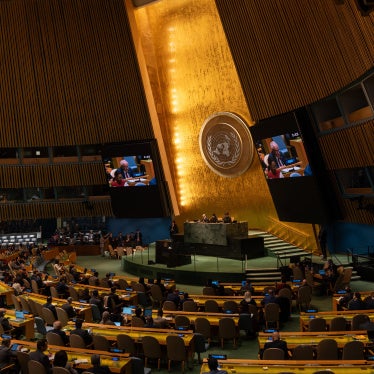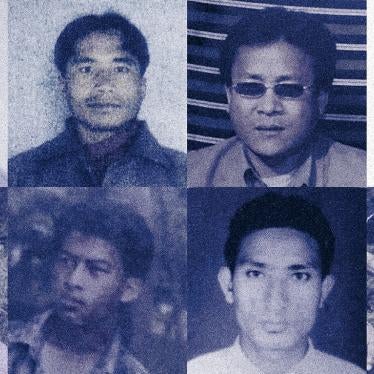For human rights organizations like Human Rights Watch, corruption and mismanagement are increasingly important issues. Corruption impedes government accountability and can motivate security forces to commit abuses for financial gain. And large-scale government corruption and mismanagement undermine key economic, social and cultural rights, like the rights to health and education, because available resources that governments should be spending on services for their own people is squandered or stolen.
We’ve documented cases where police extort money from people by arresting or torturing them until they pay. In India, police have beaten and jailed street children just for the money in their pockets. They have tortured children to extract false confessions to crimes and then offered to drop the charges in exchange for bribes. In Russia, police extorted money from refugees and foreigners living in the country because of their residency status. Sadly, these patterns are repeated in various forms throughout the world.
In Peru, corruption and human rights violations went hand-in-hand under the Fujimori government from 1990-2000 and eroded key elements essential for the respect of human rights—the rule of law and the country’s democracy. For example, after the 1995 elections, Fujimori gave his close personal advisor, Vladimiro Montesinos, de facto control over the National Intelligence Service (SIN) and ordered that millions of dollars be diverted to the SIN from the armed forces and Ministries of Defense and Interior. These and other illicitly obtained funds were used to buy off politicians, co-opt judges, and wrest editorial control from media owners. Flush with funds, the SIN and Army Intelligence also spied on journalists, civil society activists, and politicians and intimidated and threatened them. In some instances Fujimori also obtained loyalty or silence by extortion and blackmail.
By the end of 2000, the Fujimori presidency had effectively undermined institutions that could hold it accountable and had near total control over the congress, the judiciary, the prosecutorial system, the electoral monitoring bodies, the financial and tax system, and a substantial segment of the media, especially television. The problem was so widespread that by 2005, anti-corruption courts in Peru had charged 1,509 people for crimes committed in this context, and about U.S.$197 million had been repatriated from foreign bank accounts.
More recently we have addressed a type of corruption that undermines the rights of millions of people: government theft or mismanagement of massive amounts of funds that could have been used to improve healthcare or schools or on other activities to ensure greater realization of economic, social, and cultural rights. In Nigeria, we documented how state and local governments in Rivers state, the country’s wealthiest state because it is one of the key oil producing states in the Niger Delta region, regularly mismanaged funds. Instead of adequately investing in schools or healthcare, state and local government officials spent their citizens’ money on lavish travel budgets, jet aircraft, and wasteful projects. We have also documented how the oil-rich Angolan government could not account for about $4.2 billion in public funds from 1997 to 2002 when it spent roughly the same on social services on an impoverished and warscarred population in need of much greater assistance.
TI has led the fight against corruption, and increasingly the work of human rights groups and anticorruption groups are beginning to converge. These organizations have played a key role in initiatives like the Extractive Industries Transparency Initiative and in pressing institutions such as the World Bank to adopt stronger anticorruption guidelines. But TI, HRW, and other groups still have much more to do to hold governments, companies, and other institutions accountable in order to ensure that funds are used appropriately and people do not fear abuse.
Arvind Ganesan is the Director of the Business and Human Rights Program at Human Rights Watch







